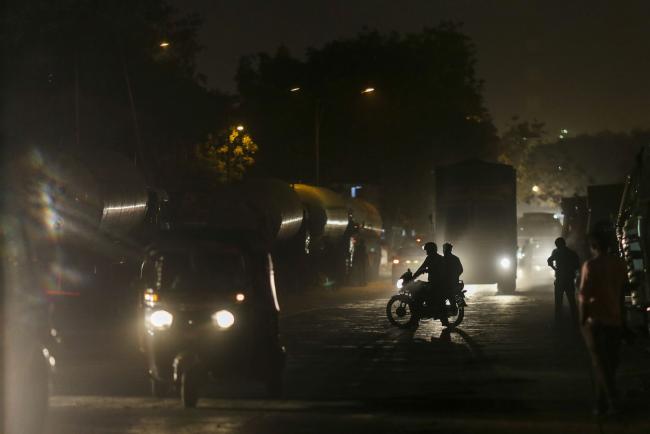(Bloomberg) -- India is attempting to prevent any repeat of last year’s shadow banking crisis after detecting “signs of fragility” in some of the 50 housing finance and other non-bank lenders it is monitoring, according to central bank Governor Shaktikanta Das.
The Reserve Bank of India is working closely with the country’s lenders to prevent the collapse of another large systemically important non-bank finance company, Das said in one of his first media interviews since becoming governor in December. “It is our endeavor that there is no contagion,” Das said.
A year after a series of defaults by Infrastructure Leasing & Financial Services Ltd. forced the government to intervene and exposed weaknesses in the sector, the problems of India’s NBFCs are entering a new phase. Some lenders such as Dewan Housing Finance Corp. and tycoon Anil Ambani’s Reliance Capital Ltd. are struggling, putting the loans they received from regulated banks at risk.
“We are constantly in touch with the large lenders” about the NBFCs and housing finance companies “where we see some signs of fragility,” Das said in the interview, which took place at his office in the RBI building overlooking the Mumbai skyline and the Arabian sea.
“Our effort is to see that there is no repeat instances of systemically important large NBFC collapsing,” the governor said.
Just as they emerge from the worst bad-loan problem in two decades, India’s banks are staring at another potential surge in soured debt as a result of their exposure to troubled non-bank finance companies. In its latest Financial Stability Report, the Reserve Bank of India warned that any failure among the largest of the NBFCs or housing finance firms could cause losses comparable to a major bank collapse.
- Read the full transcript of the interview.
- Read more about the RBI’s interest-rate stance.
The central bank selected the non-banks to monitor based on the size of their balance sheet, the scale of their operations, as well as governance practices and credit behavior, he said.
There have been some instances of governance lapses and “we are dealing with it,” Das said, without naming any company. “But there are a large number of others who have encountered business failures and certain external factors which impacted their business model.”
Das said lenders which haven’t been diligent in their lending practices “will have to pay” the price for it.
Read about the RBI’s concerns on potential shadow bank losses
The Indian government earlier this month threw a lifeline to the better-rated NBFCs by agreeing to backstop some of the assets that banks purchase from them, thereby improving their liquidity. The RBI, which is now a regulator of the housing finance companies, also eased liquidity ratio rules for banks to encourage refinancing for shadow lenders.
However, the Reserve Bank has resisted calls to provide a separate liquidity window for the struggling shadow banks, and Das reiterated his opposition, saying in the interview that a NBFC “refinance window is a misnomer.”
“Not a day has passed over the last several months when internally we have not had a review or some discussion on the NBFCs, either on the sector, or on the individual NBFCs,” Das said in his office adorned with two replicas of Lord Jagannath, a form of the Hindu god Vishnu, revered in his native Odisha state. “There have been improvements but challenges still remain.”
India’s cash-strapped NBFCs are closely interconnected with the banks, either through loans or purchases of the non-banks’ bonds. That poses a new challenge to the RBI’s efforts to clean up from an earlier bad-loan crisis -- mostly due to excessive lending to large energy, steel and other industrial companies -- and to encourage more lending to boost the economy.
Dewan Housing dropped 2% at 9:36 a.m. in Mumbai, while Bajaj Finance Ltd., which has gained 21.4% this year, fell 3.3%
Read how the shadow banks risk an Indian bad-loan redux
Mortgage lenders had outstanding loans of about 9.3 trillion rupees ($135 billion) as of March 31, 2018, according to RBI data. Repayment of some of the loans may be at risk as the cash crunch among non-banks has raised questions about the solvency of real estate companies, and threatens to push 70% of them out of business in the next two years, Goldman Sachs Group Inc (NYSE:GS). analysts said in a note earlier this month.
Resolving the issues will involve losses for the owners of some of the non-bank companies, Das said.
“In the process, the promoters will have to make certain sacrifice,” Das said, referring to the founders of non-banks. The promoters will “have to accept certain hair cut and the banks will also have to deal with it appropriately.”
(Updates with share price moves in fourth last paragraph)
